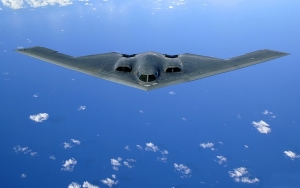Arms Control Opportunities in the Emerging Two-nuclear-peer Environment

Speakers: Ms. Amy Woolf (Atlantic Council, Snowcraft Center for Strategy and Security)
Date: 14 May 2024
Speaker Session Summary
The proliferation of nuclear weapons is increasingly critical to international security, particularly concerning long-standing nuclear-capable adversaries like Russia and China. Both nations have significant geopolitical and security considerations that make bilateral nuclear arms control agreements with the United States unlikely. Ms. Woolf suggests that, given the current geopolitical climate, the United States should focus on enhancing transparency and fostering mutual self-restraint with Russia and China, rather than relying solely on formal treaties and legal agreements. She highlights past overtures by the US to both countries for bilateral talks, which were declined, indicating a preference for less formal mechanisms to manage nuclear relations.
The withdrawal of Russia from the NEW START treaty in 2023 exemplifies the challenges of maintaining such formal agreements, especially amidst the ongoing conflict in Ukraine, which further diminishes the prospects of renewing the treaty. China, on the other hand, has consistently refused to engage in a formal nuclear arms control treaty with the US, citing the disparity in the size of their respective nuclear arsenals as a primary reason. Ms. Woolf underscores the reciprocal nature of the US and China’s defensive postures, where each side perceives its actions as a response to the other’s perceived aggressiveness, complicating efforts towards cooperation. This mutual suspicion necessitates a shift towards confidence-building measures, such as increased transparency and self-restraint, to stabilize and manage nuclear relations in the absence of formal treaties.
Speaker Session Recording
Briefing Materials
Biography: Amy F. Woolf is a consultant specializing in nuclear weapons and arms control policy. Her research interests include nuclear weapons policy in the United States and Russia, the U.S. domestic politics of arms control, monitoring and verification of arms control agreements, and the future of US–Russian arms control. She was a specialist in nuclear weapons policy at the Congressional Research Service for over 30 years, where she provided the US Congress with expert analysis and advice on these issues. Ms. Woolf is currently serving as a Scowcroft non-resident fellow at the Air Force Academy’s Institute for National Security Studies. She has also served as a non-resident Senior Fellow in the Forward Defense practice of the Atlantic Council and a visiting fellow at Perry World House at the University of Pennsylvania. Ms. Woolf received a master’s degree in public policy from the Kennedy School of Government at Harvard University and a bachelor’s degree in political science from Stanford University.
Comments